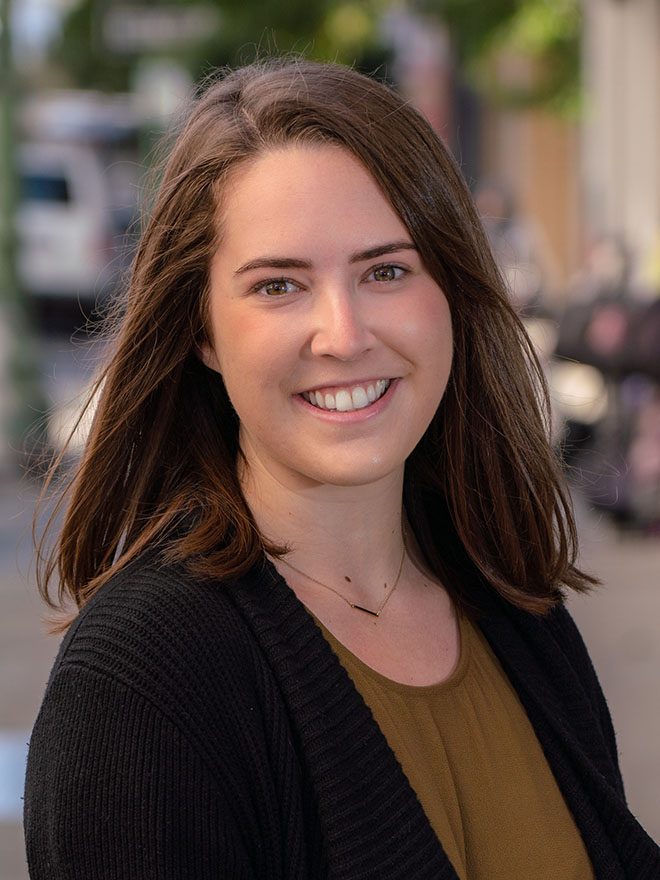
“As a Californian, I have lived through some pretty terrible fire seasons,” says Rebecca Avilés, MPP’22. “And as a Puerto Rican, I also remember seeing the energy infrastructure crumble when Hurricane Maria hit the island in 2017. Our U.S. energy system is not designed to withstand these extreme weather events.”
That’s why Avilés has dedicated her career to addressing climate change, working toward a more sustainable future through responsible energy policy.
“I’m interested in how we transfer away from fossil fuels that are contributing to climate change, but also how we make policy that supports local communities,” she says.
Since graduating from college, she has worked for a number of nonprofit organizations dedicated to environmental sustainability, including helping school districts in the San Francisco Bay Area reach sustainability goals.
“I saw firsthand what it takes to institutionalize change, and that got me interested in public and social policy,” Avilés says.
She then moved into energy policy, working for a consulting and advocacy group called Energy Solutions. She focused on changes to the building code and updating appliance standards to make them more efficient and affordable, all with the ultimate goal of helping California reach its climate action goals.
“I learned a lot about bringing together stakeholders, building a coalition to inform policy, and making sure we’re advocating for smart solutions, informed by research,” she says. “One aspect that really interested me was making sure there was support within the community for who these policies would affect.”
After two years, she decided to pursue a Master of Public Policy, and chose Heller for its focus on social justice.
“Being in a program with students trying to accomplish similar positive change was important,” she says. In addition, she valued the close connection between students and researchers at Heller. “In the energy world, there’s a need to bring your own research and findings.”
At Heller, she’s taking advantage of the variety of perspectives from her peers and professors to make the explicit connection between environmental and racial justice. Communities of color often live in areas with the fewest resources, making them particularly vulnerable to power outages that cut off their access to food and medical equipment.
“The thing about climate change is that it’s a huge opportunity to address environmental racism and social injustice,” she says. “Climate change impacts all those issues, such as poverty and health, because it all intersects.”
“I really want to help adopt and build policy solutions and whether that's at the local government or federal government level. There's just an urgency to implement and adopt policy solutions—and there's a lot already that we can implement, because we have a lot of the technology solutions.”
